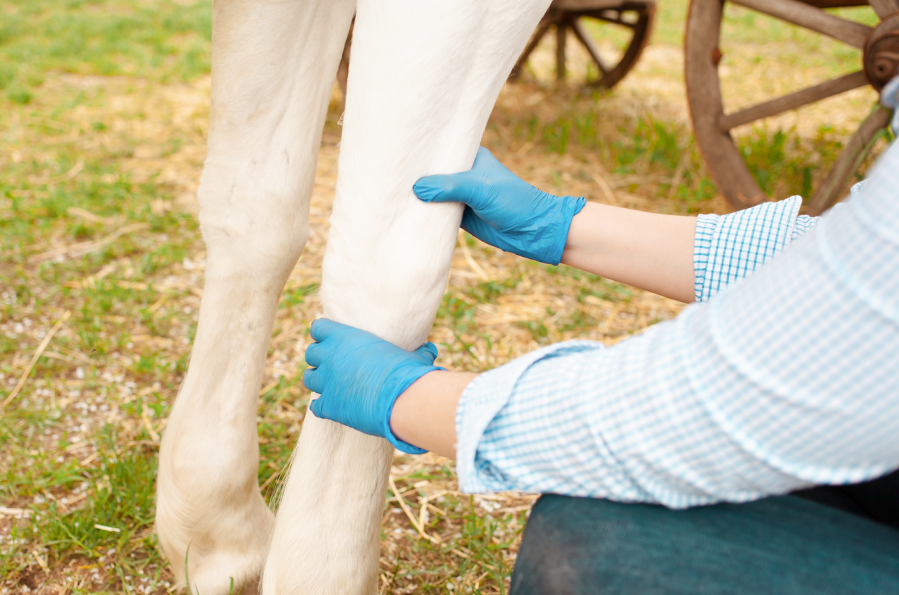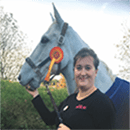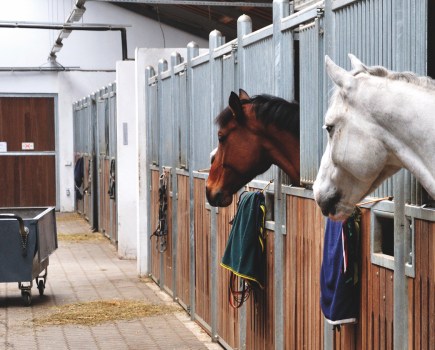A new helmet specifically designed for vets while working with horses is in the pipeline following a meeting between key stakeholders from the equine veterinary sector.
Veterinary staff can currently choose from riding helmets and headwear used by emergency services, but none of this safety gear has been specifically engineered for the unique demands of equine veterinary practice.
“This gap in design and functionality has sparked a collaborative effort to explore what a truly effective and practical helmet for veterinary professionals should look like, what the differing safety tests are and what helmets are currently available which may meet these requirements and be adapted for use within the veterinary industry,” said a statement.
The meeting brought together veterinarians, veterinary nurses, yard managers, practice leaders, researchers, and health and safety experts from CVS Equine and the University of Liverpool.
Representatives from helmet manufacturer Uvex also attended.
“This initiative represents a significant step forward in improving workplace safety for equine veterinary professionals in terms of helmet design,” said Sophie Ignarski, equine director at CVS.
“It is recognised that cultural change within the equine veterinary sector will take time, but CVS is committed to driving this change by investing in research, implementing policy based on the evidence and exploring helmet design.
“If the adoption of protective helmets saves just one life or prevents someone from sustaining life-changing injuries, then it is worth it.”
Alarming statistics
During the meeting, frontline professionals shared their experiences and challenges with current helmet options.
Discussions centred around the need for helmets that balance safety, comfort and practicality, such as the ability to attach accessories including head torches and visors.
It was held in response to recent research, led by Dr. John Tulloch and funded by CVS Group, which highlighted the high risk of injury faced by equine vets and nurses.
“The study, published in Preventive Veterinary Medicine, revealed alarming statistics around head injuries sustained during routine equine care, prompting CVS to take decisive action,” said the statement.
“As a result, the company has now made it mandatory for all employees handling horses to wear protective helmets.”
Charlie Tomlinson, clinical director at Hale Vets in Wiltshire, suffered a traumatic brain injury while nerve blocking a horse’s front leg. Since the accident she has always worn a safety hat when treating horses and urges other vets to do so.
Cultural shift required
The meeting also addressed the cultural shift required to normalise helmet use in equine veterinary settings.
The statement added: “Participants explored strategies to overcome resistance, promote adoption and embed safety as a core value within the profession.”
The group agreed that collaboration between veterinary professionals, researchers, and manufacturers is essential to develop a helmet that meets both safety standards and the practical realities of the equine veterinary industry.
The next steps are further consultation and trials of different types of PPE helmets and accessories, “with the goal of offering a helmet choice that is not only protective, but also widely accepted and adopted across the industry”.
Main image © Shutterstock
Related content
- Vet group launches campaign for all vet staff to wear safety helmets around horses
- Research into how riding helmets perform in rotational falls could lay groundwork for new standards
- Equine vet who suffered brain injury at work backs campaign for all vets and staff to wear hats around horses
- How to care for your riding hat so that it offers maximum protection for your head








